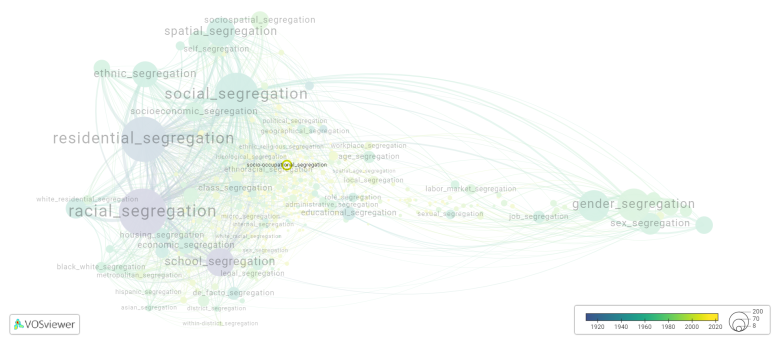Socio-occupational segregation
Date and country of first publication[1]
2014
Poland
Definition
Socio-occupational segregation refers to the uneven distribution of individuals across different occupations and industries based on their social characteristics such as gender, race, ethnicity, or socioeconomic status. This segregation occurs when certain social groups are overrepresented or underrepresented in particular occupations or industries compared to their share of the overall population.
Socio-occupational segregation can have negative impacts on individuals and society as a whole. It can perpetuate inequalities, limit opportunities for advancement and social mobility, and contribute to the widening of the wage gap between different social groups. Addressing socio-occupational segregation often requires policies and practices aimed at promoting diversity and inclusion in the workforce, eliminating discrimination and bias, and creating more equal opportunities for all individuals.
Synonyms
The following terms are synonymous with socio-occupational segregation:
socio occupational segregation.
References and literature addressing this segregation form under these synonymous terms can be found below.
See also
Related segregation forms
Socio-occupational segregation is frequently discussed in the literature with the following segregation forms:
social segregation, residential segregation, socioeconomic segregation, occupational residential segregation

This visualization is based on the study The Multidisciplinary Landscape of Segregation Research.
For the complete network of interrelated segregation forms, please refer to:
References
Notes
- ↑ Date and country of first publication as informed by the Scopus database (December 2023).
Socio-occupational segregation appears in the following literature
Marcińczak S., Gentile M., Rufat S., Chelcea L. (2014). Urban geographies of hesitant transition: Tracing socioeconomic segregation in post ceauşescu bucharest. International Journal of Urban and Regional Research, 38(4), 1399-1417. Blackwell Publishing Ltd.https://doi.org/10.1111/1468-2427.12073
